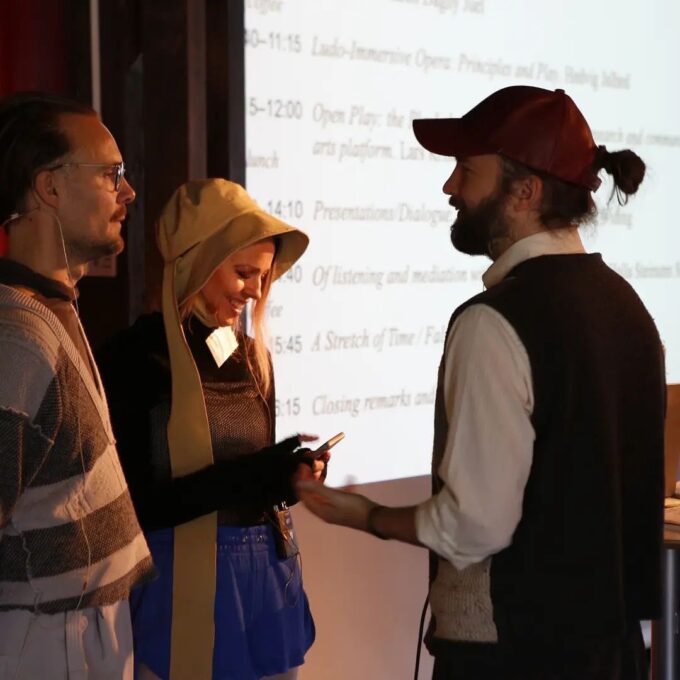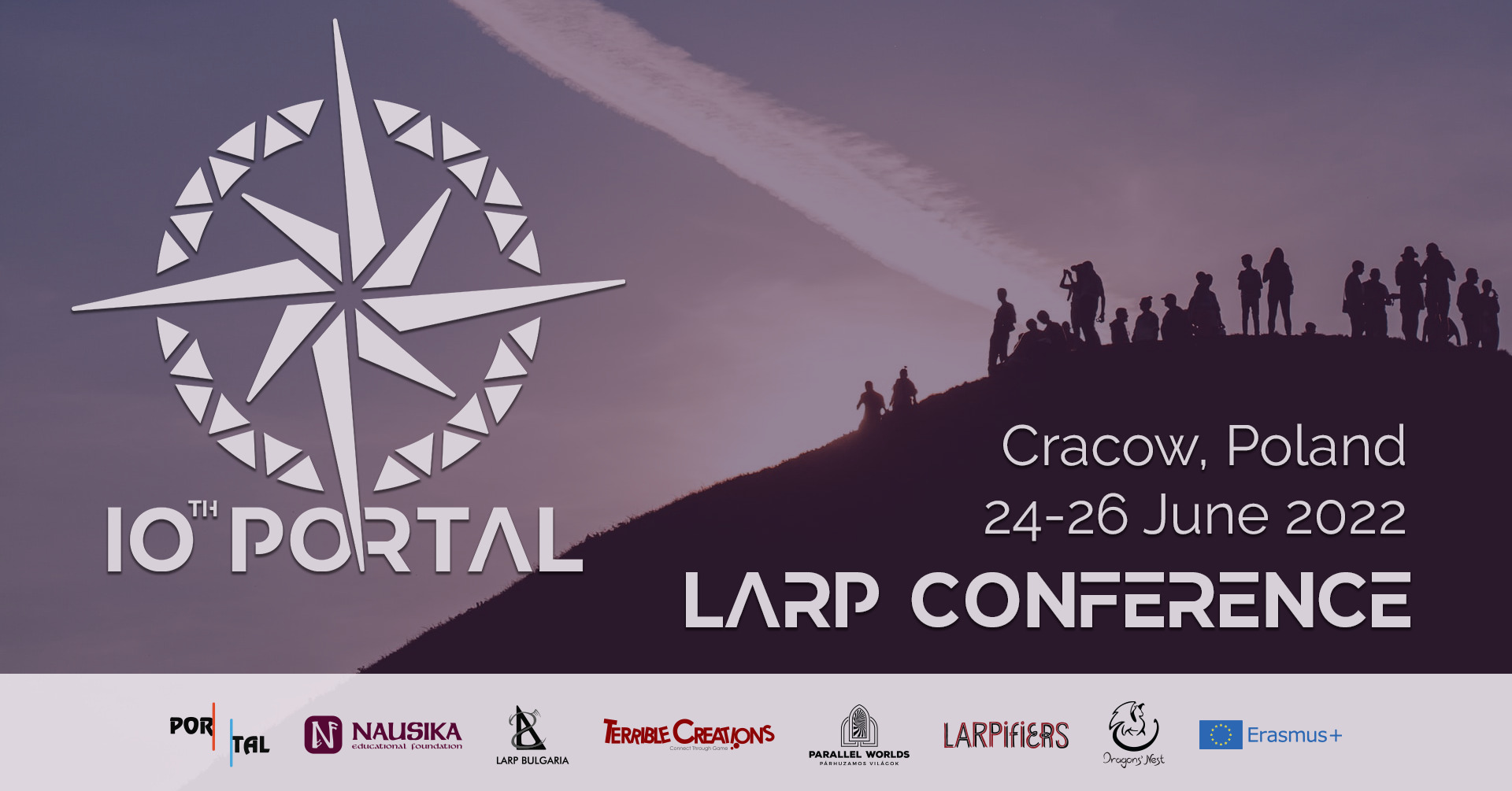Tag: play
-

In conversation with Lundahl & Seitl at IAC
Inter Arts Center “a platform for artistic research and experimentation” are very into games and play these days. Me and Nea Landin performed Mobilized there at Immersive days #3: Agents in Play. In the aftermaths i had the pleasure of giving a short improvised talk and enter a dialogue with Christer Lundahl and Martina Seitl.…
-

Workshop at Portal 10 LARP Conference
The 10th Portal celebrates diversity and invites all larpers from North, East, South, West, to share their approaches, styles, cultures, and cardinal directions of larping. We don’t strive to be a compass that shows the right direction but a wind rose that showcases all the directions at the same time. There are no rights or…
-
Circle of Scent
This is a simple score for an aesthetic experience tied to our smelling senses. It’s not site, but audience specific in the sense that the experience will differ depending on whom the participants are. The Circle of Scent is realized through a few simple steps: Organize a group of people in a circle, facing the…
-
Kontaktimpro på fjället
Sportlovsveckan var jag uppe i Åre och gjorde lite dansimprovisationer tillsammans med Sara och Elin Maria. Vi dansade i värmestugor, hotell och i backen. Det va en del av projektet Kulturgerillan som anordnades av Skistar och Vuxenskolan m fl. Bilderna togs av Simon Sjörén.
-
Labyrinthine workshop
(Swedish below) Intro, the participants standing in a circle with blindfolds on: We will walk through a labyrinth. It is created with inspiration from blueprints that I got from some people that spend a lot of time in the forests surrounding Stockholm. It is a story about courage and compassion, about lost souls seeking meaning…
-
Maskplay, Jakobsberg
Maskspel, Jakobsberg from Widing on Vimeo. This is a session from the reality game “Maskplay”. It was performed 21:st September 2008 in Stockholm suburb Jakobsberg. Plain documentation.